
Filter News
Area of Research
- Advanced Manufacturing (1)
- Biology and Environment (8)
- Clean Energy (26)
- Computer Science (1)
- Fusion and Fission (5)
- Isotope Development and Production (1)
- Isotopes (1)
- Materials (44)
- Materials Characterization (1)
- Materials for Computing (5)
- Materials Under Extremes (1)
- National Security (6)
- Neutron Science (14)
- Nuclear Science and Technology (3)
- Supercomputing (23)
News Type
News Topics
- (-) Decarbonization (18)
- (-) Frontier (14)
- (-) Machine Learning (13)
- (-) Materials Science (49)
- (-) Molten Salt (2)
- (-) Space Exploration (3)
- 3-D Printing/Advanced Manufacturing (43)
- Advanced Reactors (10)
- Artificial Intelligence (29)
- Big Data (7)
- Bioenergy (23)
- Biology (21)
- Biomedical (17)
- Biotechnology (7)
- Buildings (12)
- Chemical Sciences (28)
- Clean Water (2)
- Climate Change (22)
- Composites (9)
- Computer Science (57)
- Coronavirus (17)
- Critical Materials (11)
- Cybersecurity (17)
- Education (3)
- Element Discovery (1)
- Energy Storage (41)
- Environment (35)
- Exascale Computing (9)
- Fossil Energy (1)
- Fusion (14)
- Grid (15)
- High-Performance Computing (27)
- Isotopes (18)
- ITER (2)
- Materials (57)
- Mercury (2)
- Microelectronics (1)
- Microscopy (16)
- Nanotechnology (26)
- National Security (18)
- Net Zero (3)
- Neutron Science (49)
- Nuclear Energy (26)
- Partnerships (27)
- Physics (24)
- Polymers (12)
- Quantum Computing (9)
- Quantum Science (26)
- Renewable Energy (1)
- Security (11)
- Simulation (8)
- Statistics (1)
- Summit (20)
- Sustainable Energy (30)
- Transformational Challenge Reactor (4)
- Transportation (25)
Media Contacts
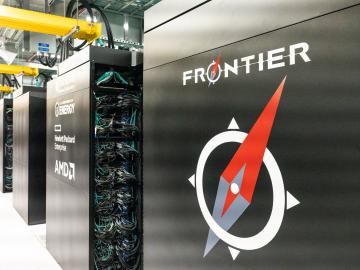
The Frontier supercomputer at the Department of Energy’s Oak Ridge National Laboratory earned the top ranking today as the world’s fastest on the 59th TOP500 list, with 1.1 exaflops of performance. The system is the first to achieve an unprecedented level of computing performance known as exascale, a threshold of a quintillion calculations per second.
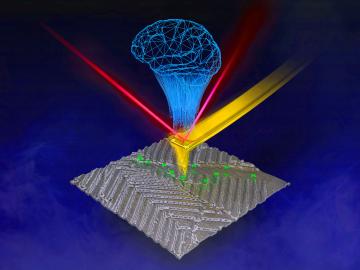
Researchers at ORNL are teaching microscopes to drive discoveries with an intuitive algorithm, developed at the lab’s Center for Nanophase Materials Sciences, that could guide breakthroughs in new materials for energy technologies, sensing and computing.

ORNL and the Tennessee Valley Authority, or TVA, are joining forces to advance decarbonization technologies from discovery through deployment through a new memorandum of understanding, or MOU.
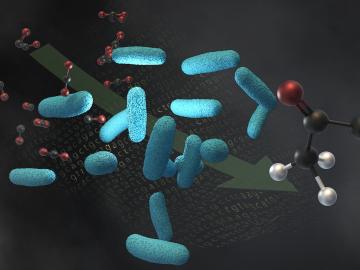
A team of scientists from LanzaTech, Northwestern University and ORNL have developed carbon capture technology that harnesses emissions from industrial processes to produce acetone and isopropanol

Muralidharan was recognized for “a highly prolific spirit of innovation in creating or facilitating outstanding inventions that have made a tangible impact on the quality of life, economic development and welfare of society.”
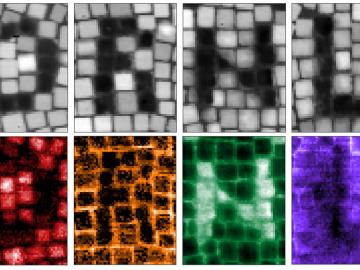
Drilling with the beam of an electron microscope, scientists at ORNL precisely machined tiny electrically conductive cubes that can interact with light and organized them in patterned structures that confine and relay light’s electromagnetic signal.

More than 50 current employees and recent retirees from ORNL received Department of Energy Secretary’s Honor Awards from Secretary Jennifer Granholm in January as part of project teams spanning the national laboratory system. The annual awards recognized 21 teams and three individuals for service and contributions to DOE’s mission and to the benefit of the nation.

A world-leading researcher in solid electrolytes and sophisticated electron microscopy methods received Oak Ridge National Laboratory’s top science honor today for her work in developing new materials for batteries. The announcement was made during a livestreamed Director’s Awards event hosted by ORNL Director Thomas Zacharia.
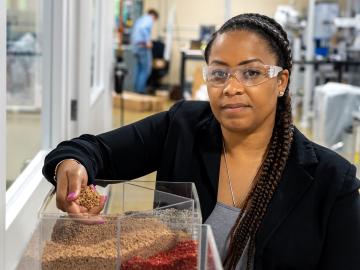
ORNL and Tuskegee University have formed a partnership to develop new biodegradable materials for use in buildings, transportation and biomedical applications.

The U.S. Department of Energy’s Office of Science announced allocations of supercomputer access to 51 high-impact computational science projects for 2022 through its Innovative and Novel Computational Impact on Theory and Experiment, or INCITE, program.


